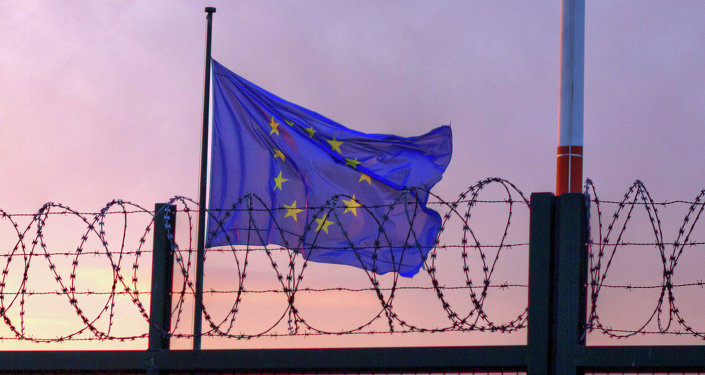By Nikolaj Nielsen and Eszter Zalan, Euobserver
Threats are mounting to expel Greece from the EU’s border-free Schengen zone, as interior ministers meet on Monday (25 January) in Amsterdam to discuss extending border controls for two years.
Austria’s interior minister, Johanna Mikl-Leitner, said on her way into the informal meeting in the Dutch city: “It’s clear that that if we can’t secure the Greek-Turkish border, the Schengen border will move to central Europe.”
“We have to name things by name, everyone knows we need to secure borders,” she said, adding that Greece must act as soon as possible to protect the EU’s external borders.
“It’s a myth that Greece can’t secure the borders. It has one of the largest navies in Europe,” she said, adding that she is “sure” Europe needs a common border and coastal guard.
Luxembourg’s minister of internal security, Etienne Schneider, disagreed with his Austrian colleague, however.
He said, on his way in, that “we need to preserve Schengen”, and that the recent Luxembourg EU presidency sent recommendations to individual member states on what they could do better.
Schengen ‘existential threat’
The discussions come amid moves by Germany and Austria to tighten border checks, with German interior minister Thomas de Maiziere last week announcing indefinite controls.
EU law limits internal border checks to six months, but they can be expanded to two years should Greece’s external borders prove to pose an existential threat to the passport-free zone.
With the German border check deadline approaching in May and expectations high that many more refugees will arrive in summer, talks of a Greek Schengen expulsion have resurfaced.
Similar statements were made last year by Slovak prime minister Robert Fico.
“We just cannot put up with a member country that has openly given up on safeguarding the Schengen area borders,” he said at a parliamentary hearing in December.
The central European nation is taking over the EU presidency in July and is pushing to launch a new EU border agency, which could post guards to the Greek external border even if Athens dosn’t want it.
Ongoing evaluation
The Greeks, for their part, face an almost insurmountable task given they have to patrol their many islands, while thousands continue to disembark from Turkey on a daily basis.
Despite having asked other EU states for help, Athens has had to face the mass movement of refugees from Turkey mostly alone.
So-called hotspots, an EU plan to screen, register, and identify arrivals on the islands, have largely failed as EU states lag far behind on pledges to send personnel and staff to help.
Over 800,000 people arrived last year alone, with Greek islanders and local fisherman helping and rescuing thousands.
In November, under pressure from EU governments, Athens agreed to also increase registrations.
Meanwhile, EU officials late last year were sent to spot check Greek border gaps as part of a Schengen evaluation report.
The report, which will feed into whether or not to expel Greece from Schengen, has been kept under wraps from the public.
An EU official told MEPs in the European Parliament civil liberties committee in December that the report would soon be submitted and adopted by the Schengen evaluation committee.
Sources say the commission’s report on Greece’s inability to protect the external borders, which is needed to trigger the temporary expulsion of Greece from Schengen, is still in the making, and will be ready by the next EU summit, in mid-February.



















